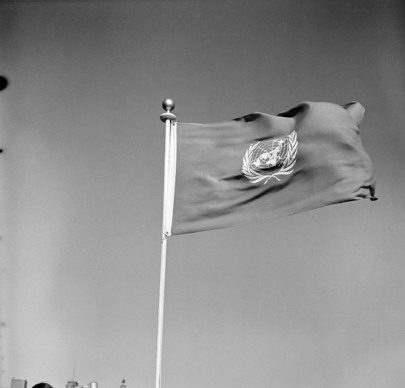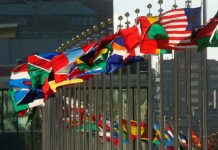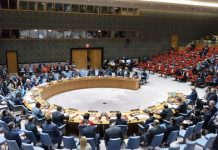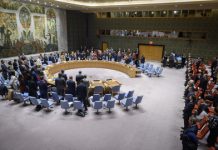Sudan: aid deliveries at risk from escalating fighting in El Fasher
In Sudan, escalating fighting in El Fasher in the west of the country is putting aid deliveries at risk, the UN’s top humanitarian official has warned.
Tom Fletcher, the UN Emergency Relief Coordinator, said from inside Sudan on Friday that the border crossing from Adre in Chad is a lifeline for “desperately needed aid”. But he warned that humanitarian funding remains at a critical level “and the international community must redouble its efforts now”.
Since war erupted in Sudan in April last year, it has become the world’s largest hunger crisis and uprooted 11.4 million people inside and outside the country.
Humanitarians remain deeply concerned that half of Sudan’s population – a full 25 million people – needs help now, including 14 million children.
They lack access to food, water, shelter, electricity, education and healthcare.
To date, more than 18,800 civilians have reportedly been killed and more than 33,000 injured.
In Ukraine, condemnation of new Russian strikes on power stations
To Ukraine, where the UN’s nuclear watchdog has condemned this week’s massive wave of Russian attacks on power stations.
In an alert, the International Atomic Energy Agency (IAEA) said that strikes on Ukraine’s energy infrastructure had forced three operating nuclear power plants to reduce electricity generation as a precaution.
The attacks “further endangered nuclear safety” warned IAEA chief Rafael Grossi.
This is the second time in less than two weeks that the Khmelnytskyy, Rivne and South Ukraine nuclear power plants have lowered power levels, amid continuing Russian attacks across the country, Mr. Grossi said.
Missile and drone strikes launched from Russia reportedly caused damage in at least 13 regions of Ukraine, including Kyiv City.
Blackouts affected more than one million people across the country, said UN human rights office spokesperson Jeremy Laurence.
“Since March, Ukraine’s energy production capacity has been targeted in waves of attacks, causing foreseeable and wide-ranging harm to civilians. As ever, the most vulnerable – older people, low-income households, people with disabilities and those who are internally displaced – have been particularly put at risk.”
Gaza: Even bread is slipping out of people’s reach, warns UN food agency
Bread is a lifeline for many families in Gaza, as it is often the only food they can access. But now, even that is slipping out of their reach, the UN World Food Programme (WFP) said on Friday.
In an alert, “WFP” warned that all bakeries in central Gaza have shut down because they lack supplies of flour.
The UN agency repeated its call for safe and secure access “for aid trucks and staff” of vital humanitarian aid into Gaza, adding that famine “remains a serious risk” in the enclave.
Despite increasing challenges facing humanitarians in Gaza, WFP has reached around 815,000 people with some form of aid this month.
About 500,000 received a single food parcel, considered to be one third of the normal monthly ration, while around 300,000 have received hot meals.
The UN agency has repeated warning that many Gazans must now struggle to survive another winter in makeshift shelters, while food assistance levels are at their lowest in a year.
“With almost all Gazans displaced, the heavy rain and wind is damaging the makeshift shelters. Many children are without shoes,” WFP said.
Daniel Johnson, UN News
Music composed and produced by Joachim Harris. All rights reserved
Source of original article: United Nations (news.un.org). Photo credit: UN. The content of this article does not necessarily reflect the views or opinion of Global Diaspora News (www.globaldiasporanews.com).
To submit your press release: (https://www.globaldiasporanews.com/pr).
To advertise on Global Diaspora News: (www.globaldiasporanews.com/ads).
Sign up to Global Diaspora News newsletter (https://www.globaldiasporanews.com/newsletter/) to start receiving updates and opportunities directly in your email inbox for free.































